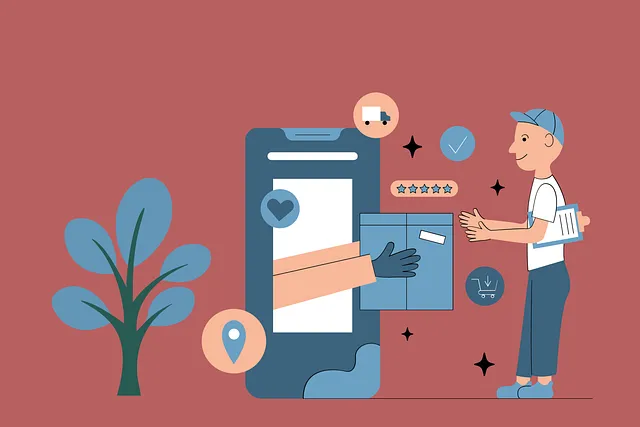Investigative journalists are now leveraging the same cybersecurity measures used for secure online shopping by homeowners and real estate investors to protect their work. These include sophisticated encryption, VPNs, proxy servers, and the Tor network, which help them keep their sources confidential and ensure personal safety when uncovering corruption. This shift underscores the importance of digital privacy in all its forms, highlighting that the tools used for secure online shopping are equally critical for journalistic integrity and the fight against corrupt practices. By adopting these robust protocols, journalists can maintain covert operations, access sensitive information without fear of identification, and operate with greater freedom and less risk of censorship or repercussions. The integration of VPNs, secure messaging services, and cryptocurrencies for transactions enhances anonymity and digital security, ensuring that both homeowners and real estate investors can engage in secure online shopping, as well as journalists who are investigating sensitive topics. These measures collectively protect the confidentiality of their activities and personal information across the digital realm.
In an era where information is currency and transparency can be a matter of life or death for investigative journalists, maintaining anonymity while conducting research on corruption has become a critical skill. This article delves into the digital tools and techniques that serve as a journalist’s shield and pen, enabling them to navigate the web without compromising their identity. From leveraging secure online shopping protocols to understanding the nuances of Virtual Private Networks (VPNs), we explore how these resources not only protect personal data for homeowners and real estate investors but also empower journalists to uncover stories that demand public scrutiny. This exploration of digital anonymity is essential for safeguarding the integrity of investigative journalism in the face of increasing surveillance and cyber threats.
- Navigating Online Anonymity: A Lifeline for Investigative Journalism in Corruption Exposure
- The Role of Secure Online Shopping Techniques in Protecting Journalists' Identities
- Utilizing Virtual Private Networks (VPNs) to Safeguard Research Trails
- Best Practices for Anonymous Web Browsing and Data Gathering Tools for Investigative Reporters
Navigating Online Anonymity: A Lifeline for Investigative Journalism in Corruption Exposure

In an era where digital footprints can be as revealing as overt surveillance, investigative journalists delicately tread the cyberspace to uncover corruption without compromising their sources or their safety. Secure online shopping platforms have long utilized advanced encryption and privacy-preserving techniques to protect transactions for homeowners and real estate investors, and these same technologies are now becoming invaluable tools for investigative journalism. Journalists leveraging the web’s vast resources must employ robust anonymity networks to cloak their digital identities, enabling them to freely navigate online repositories of information without fear of identification or retribution. The use of Virtual Private Networks (VPNs), proxy servers, and the Tor network allows these journalists to operate under a veil of obscurity while sourcing documents, communicating with insiders, or conducting research that could be sensitive in nature.
The intersection of secure online practices and investigative journalism underscores the importance of digital privacy for all users. As journalists investigate corruption, they often rely on the same protocols that safeguard financial transactions for homeowners and real estate investors—demonstrating the universal need for online anonymity. The ability to remain anonymous is not just a matter of operational security in journalism but a fundamental right that supports the pursuit of truth without undue influence or censorship. In this context, the tools and technologies that ensure secure online shopping also fortify the freedom of the press to hold power to account, making them indispensable in the arsenal against corruption.
The Role of Secure Online Shopping Techniques in Protecting Journalists' Identities

Journalists investigating corruption must navigate a digital landscape fraught with risks to their personal security. In this context, secure online shopping techniques can play a pivotal role in safeguarding their identities. These journalists often require tools and resources that are not easily traceable back to them, similar to the needs of homeowners and real estate investors who engage in secure online transactions. The use of virtual private networks (VPNs), encrypted messaging services, and digital payment platforms that offer anonymity can help maintain a journalist’s confidentiality. By adopting best practices from the realm of secure online shopping for both homeowners and real estate investors, journalists can minimize the exposure of their sensitive information, thereby protecting their sources and personal safety. These measures ensure that any purchases made, including those for field research or protective equipment, do not lead back to the individual, thus maintaining the integrity of the investigative process.
Furthermore, the principles behind secure online shopping for homeowners and real estate investors—such as the use of anonymous email addresses and secure transaction methods—can be applied by journalists to conduct their research without fear of surveillance or reprisal. The adoption of cryptocurrencies for transactions offers another layer of anonymity, as these digital currencies can often be traced back to a user’s wallet rather than their personal identity. This combination of advanced technology and privacy-focused practices not only benefits consumers in the real estate market but also becomes an indispensable tool for journalists in high-risk investigative journalism, ensuring their digital footprints remain untraceable and their identities protected.
Utilizing Virtual Private Networks (VPNs) to Safeguard Research Trails

In the realm of digital security, journalists investigating corruption must be vigilant in protecting their research trails. One effective tool for maintaining anonymity and ensuring secure communications is the use of Virtual Private Networks (VPNs). VPNs create a encrypted tunnel between the user’s device and the internet, effectively masking the user’s IP address and location. This anonymity is crucial when journalists are gathering sensitive information that could put them at risk if their identity or research focus were to be traced back to them. Moreover, VPNs are not just for individual privacy; they also play a significant role in secure online shopping for homeowners and real estate investors by shielding financial transactions and personal data from potential eavesdroppers. By choosing a reputable VPN provider, journalists can rest assured that their digital footprints are covered, allowing them to conduct their investigations without fear of surveillance or cyber threats.
The benefits of using VPNs extend beyond anonymity; they also provide access to geo-restricted content and maintain data integrity. For instance, a journalist may need to access documents or databases that are only available in certain regions. A VPN can bypass these restrictions by making it appear as if the user is accessing the internet from a different location. Additionally, for homeowners and real estate investors who engage in secure online shopping, VPNs ensure that their transactions over unsecured networks, like public Wi-Fi, are protected from prying eyes. The encryption offered by VPNs is robust enough to safeguard sensitive personal information, such as addresses, credit card numbers, and transaction details. Thus, for journalists and real estate investors alike, VPNs offer a critical layer of security in an increasingly connected world where privacy is paramount.
Best Practices for Anonymous Web Browsing and Data Gathering Tools for Investigative Reporters

Journalists conducting investigations into corruption must prioritize anonymity to protect their sources and maintain the integrity of their reporting. Best practices for anonymous web browsing include utilizing privacy-centric search engines that do not track user data, such as DuckDuckGo or StartPage. These platforms provide a secure foundation for researchers by obscuring IP addresses and providing encrypted searches. Additionally, employing Virtual Private Networks (VPNs) with a strict no-logs policy can further enhance anonymity by routing traffic through remote servers that mask the user’s true location.
For data gathering, investigative reporters should leverage specialized tools designed for secure online inquiries. Tools like Tor Browser or The Onion Router (TOR) offer a layered approach to anonymity by bouncing communications around a distributed network of relays, making it difficult to trace back to the user. Furthermore, utilization of Secure Sockets Layer (SSL)/Transport Layer Security (TLS) encryption for secure web connections is critical when accessing databases or online resources that contain sensitive information. In the realm of real estate transactions, secure online shopping portals can provide a safe avenue for homeowners and investors to conduct property searches without exposing their identities or browsing habits. These practices ensure that journalists can navigate the digital landscape with the necessary discretion while also allowing homeowners and investors to engage in secure online activities related to real estate.
In conclusion, the digital landscape presents unique challenges for investigative journalists delving into corruption, necessitating robust online anonymity measures. The adoption of secure online shopping techniques, often utilized by homeowners and real estate investors for safeguarding their transactions, can serve as a valuable model for protecting journalists’ identities. Employing Virtual Private Networks (VPNs) and best practices for anonymous web browsing, alongside data gathering tools tailored for investigative reporting, are indispensable in shielding sensitive research trails from prying eyes. As these practices become more widespread among journalists, the integrity of their work and the safety of their operations are enhanced, ensuring that the pursuit of truth remains both a viable profession and a critical component of a healthy democracy.
